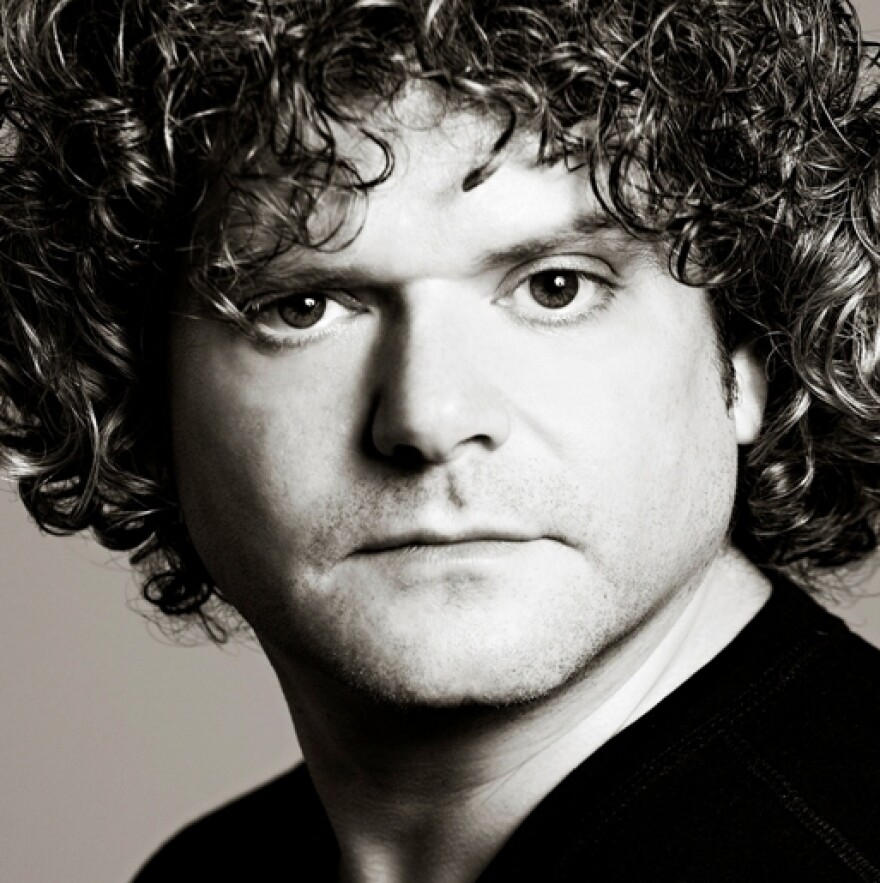How outrageously funny is Shalom Auslander's first novel? I have a habit of penciling exclamation points in margins beside bits that I find funny or shocking. By the time I finished Hope: A Tragedy, its pages looked like they were bordered in vertical Morse code — dash dot dash dot dash dot. This book is so wildly transgressive, it makes Foreskin's Lament, Auslander's 2007 memoir about fleeing his Jewish Orthodox upbringing, seem tame by comparison.
Auslander's novel grapples with the audacity — and frequent insanity — of hope, plus the very serious question about how to live in the shadow of the Holocaust. It's a devilishly twisted, hilarious saga of a man caught in a "miserable suffer sandwich" between his mother, who's afflicted with "not-traumatic-enough-stress-disorder" (and who refers constantly to her suffering in Nazi concentration camps even though "She'd never been anywhere near a war, unless you count the holiday sales at Bamberger's the morning after Thanksgiving"), and a decrepit, famous Holocaust survivor he finds living in the attic of the old upstate farmhouse he's recently moved to with his wife and young son. Wishing to escape big-city woes but instead encountering tsuris everywhere, Solomon Kugel faces a Beckettian dilemma: What's better: to hope and be disappointed, or not to hope and be miserable?
The ridiculously named Solomon Kugel is neither wise nor a casserole, but he exemplifies tragicomic Jewish humor. Kept awake worrying about an arsonist on the loose who's been torching local farmhouses, he investigates strange noises and a nauseating stench emanating from the heating vents. He discovers a putrid, profane old woman living behind boxes in his attic who claims to be Anne Frank.

How can he throw her out, Kugel wonders, imagining the lurid headlines — "Jew Drops Dime on Holocaust Survivor." Running himself ragged between her demands and his fiscal and philosophical worries, in time he discovers that the old hag really is a survivor — while he, alas, is a succumber, a perisher who's tormented by the knowledge that he wouldn't last five minutes in Auschwitz.
Controversial? Offensive? You bet. Like Philip Roth's Portnoy's Complaint — to which it has already been compared — this book will raise hackles. Auslander has the chutzpah to mine the most sacrosanct subjects for comedy, including German guilt, Jewish self-hatred, concentration camps and, of course, Anne Frank, potent symbol of Jewish martyrdom.
Assuming you don't throw his book across the room in outrage, Auslander will keep you guffawing with his blend of gallows humor and stand-up-worthy riffs on health stores where you pay a premium for what you don't get (gluten, sodium, etc.), deathbeds (Sealy SwanSongs, Tempur-Pedic UltraPlotz with Advanced MortalCoil Technology) and meaningful last words ("Do not disturb any further"). Typical of his many clever twists is Kugel's sales pitch for his job with a residential composting company: "Your waste is a wonderful thing to mind."
Auslander's novel isn't all shtick, however. In Foreskin's Lament, he tackled an inescapable, wrathful God; this time, he takes on the dark, inescapable shadow of history, again using humor as both sword and shield. His discussion even encompasses playful jabs at Steven Pinker's recent book about the decline of violence in society, The Better Angels of Our Nature, as Kugel spars with his brother-in-law, an evolutionary biologist named Pinkus Stephenor, author of the optimistic best sellers You've Got to Admit It's Getting Better and Here Comes the Sun.
Auslander has remarked that "Life is one goddamned banana peel after the next; hoping it won't be only makes you angrier when you slip on them. Laughter's the only way through this mess." Hope: A Tragedy keeps us laughing, but, like life — ultimately — it's got a sucker-punch of an ending. Brace yourself.
Copyright 2023 NPR. To see more, visit https://www.npr.org.


